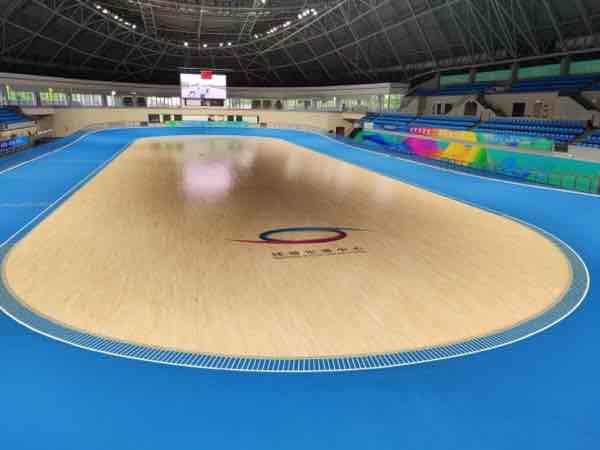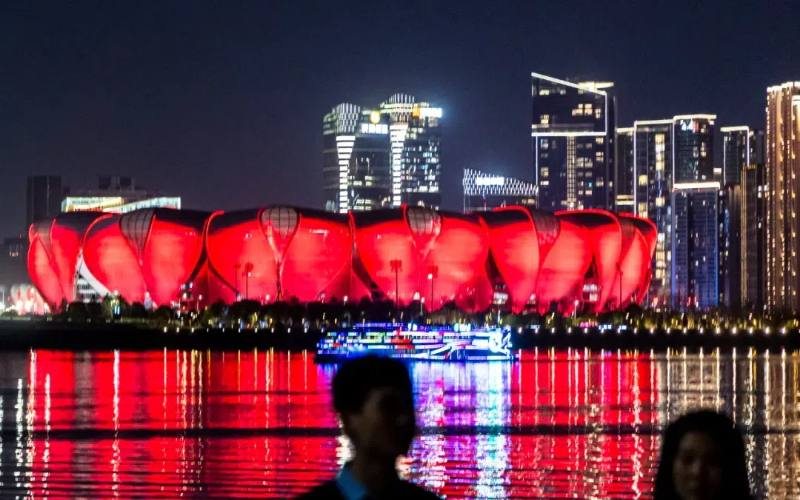Reform, innovation and industry key to Qiantang district's transformation, says official
Reform, innovation and industry are key to the rapid development and significant transformation of Hangzhou's Qiantang district in East China's Zhejiang province, according to remarks by a top district official on Wednesday.
As one of Hangzhou's "youngest" districts, Qiantang's GDP reached over 122.60 billion yuan ($17.68 billion) in 2022, and the total output value of industrial enterprises above designated size (with main business revenue of 20 million yuan and above) grew to almost 350.24 billion yuan, 20 percent of the total of Hangzhou, said Li Peng, head of Qiantang's publicity department.
Last year, 4.54 percent of the district's GDP was spent on research and development, he said.

The inside of the Qiantang Roller Sports Center for the 19th Asian Games Hangzhou 2022 is seen on May 10, 2023. [Photo/ezhejiang.gov.cn]
Home to five industrial clusters of semiconductors, life and health, intelligent vehicles and equipment, aerospace and new materials, Qiantang district, after three decades of growth, is now recognized as a major manufacturing hub in the capital city, he added.
Li's remarks came as over 20 Chinese and international media outlets gathered in the district for a tour that seeks to showcase Qiantang's history and its latest achievements.
In 1993, the Hangzhou Economic and Technological Development Area was set up as a state-level development zone after approval by the State Council. In 2019, incorporating the Hangzhou Economic and Technological Development Area and the surrounding industrial clusters, Qiantang New Area was established. Two years later, in April 2021, it officially became the Qiantang district.
Covering an area of 531.7 square kilometers, Qiantang district has seven subdistricts and 120 village communities, with a current resident population of 797,000.
Statistics show that in 2022, the output value of the automobile and related manufacturing industries in the district reached 76.6 billion yuan, with more than 230,000 vehicles produced. The annual production of automobiles in the district has increased to over 90 percent of Hangzhou's total.
Meanwhile, some 1,600 biomedical enterprises have settled in Qiantang district, and the revenue of the district's biomedical industry accounts for more than half of the city's total.
As Hangzhou prepares to host the upcoming Asian Games in late September and early October, Qiantang district, where competitions such as roller sports, handball and fencing will be held, will do its best to present a high-quality event to players, visitors and audiences from Asia and all around the world, Li said.





 play
play